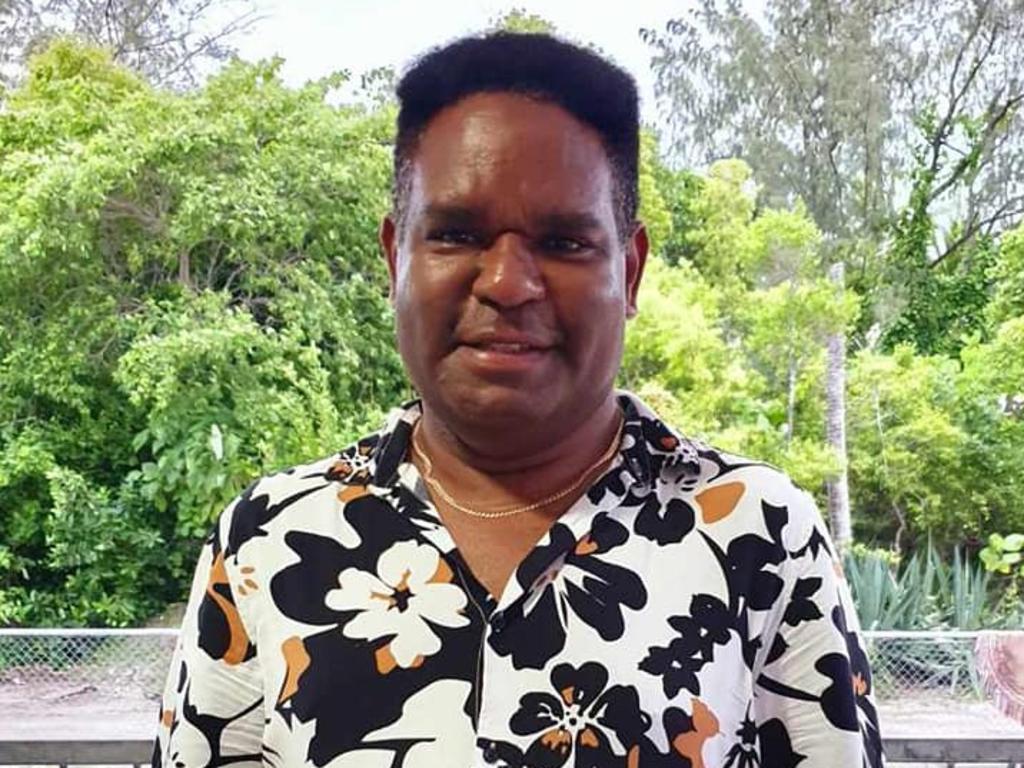Federal Court rejects Torres Strait Islanders’ climate compensation claim
A Federal Court judge says the Abbott and Morrison governments paid scant if any regard to the best available science on emissions reductions, but ruled the commonwealth did not owe compensation as the Torres Strait is ravaged by climate change.
A Federal Court judge has lashed the Coalition’s climate change policies, saying the Abbott and Morrison governments paid scant if any regard to the best available science on emissions reductions necessary for Australia to play its part in global objectives.
Justice Michael Wigney also said that while the Albanese government had paid “some regard” to the best science on climate it “perhaps did not go as far as some climate scientists would consider was necessary”.
In a judgment delivered in Cairns on Tuesday, Justice Wigney said the Torres Strait had been ravaged by human-induced climate change but the commonwealth did not owe compensation for this.
His decision in the landmark climate change case ruled against a group of traditional owners from the Torres Strait, saying “the commonwealth did not, and does not, owe Torres Strait Islanders the duty of care alleged”.
He found the two men who brought the case against the commonwealth – Pabai Pabai, 53, and Guy Paul Kabai, 55, both from the Guda Maluyligal nation – had proved “the devastating impacts that human-induced climate change has had, and continues to have, on the Torres Strait and on the traditional inhabitants of the Torres Strait Islands and their culture and way of life”.

Justice Wigney said he also accepted their evidence that when Coalition governments set and communicated Australia’s greenhouse gas emission reduction targets in 2015, 2020 and 2021, they “did not engage with or give real or genuine consideration to the best available science”.
“I have found that the targets that were set by the commonwealth in those years were not based on, and were not consistent with, what the best available science said about the size of the emissions reductions that would be necessary for Australia to achieve for it to play its part in meeting the global objective of holding the increase in global average temperature to 1.5℃ above pre-industrial levels,” Justice Wigney wrote in a summary of his judgment published on Tuesday.

However Justice Wigney ruled against Mr Pabai and Mr Kabai “because common law is not a suitable legal vehicle through which the applicants could obtain effective relief in respect the type of harm they claim to have suffered as a result of the type of governmental action or inaction which was in issue in this case”.
“The best available science was and is patently clear,” Justice Wigney wrote in his summary.
“To prevent the worst and most dangerous impacts of climate change, it was and is imperative for every country to take steps to drastically reduce their greenhouse gas emissions so as to ensure that the increase in the global average temperature is held to well below 2°C above pre-industrial levels, and to pursue efforts to limit the temperature increase to l.5°C above pre-industrial levels.

Referring to the targets Australia set in 2015, 2020 and 2021, Justice Wigney said: “In short, the evidence revealed that when it set Australia’s greenhouse gas emissions targets in those three years, the commonwealth paid scant if any regard to the best available science”.
“It is important to note, however, that I have found that, when the commonwealth, under a new government, reset Australia’s emissions reduction target in 2022, it did have some regard to the best available science,” Justice Wigney said.
“While the target that was set by the commonwealth in that year perhaps did not go as far as some climate scientists would consider was necessary for Australia to play its part in the global objective of holding global average temperatures to l.5°C above pre-industrial levels, that emissions reduction target was significantly higher and more ambitious than the targets set by the previous government.
“The new target appeared to be based, at least in part, on what the best available science revealed about the emissions reductions that Australia would have to achieve for Australia to meets its obligations under the Paris Agreement.”
Opposition spokesman for Energy and Emissions Reduction Dan Tehan said that in 2021-22 - the last year of Coalition government - emissions in Australia were down 28 per cent on 2005 levels, exceeding commitments.
After three years of Labor there had been a one per cent improvement.
“Labor is yet to explain credibly how they will achieve their targets and how much it will cost, without fudging the numbers,” Mr Tehan said.
“Meanwhile, under Labor power prices have sky rocketed more than 30% with the government breaking its promise to cut electricity bills by $275 for every household.“
In a statement after the judgment, Boigu traditional owner Uncle Pabai Pabai said: “My heart is broken for my family and my community. Love has driven us on this journey for the last 5 years, love for our families and communities. That love will keep driving us. ”
Uncle Paul Kabai, a Saibai traditional owner, said: “I thought that the decision would be in our favour, and I’m in shock. This pain isn’t just for me, it’s for all people Indigneous and non-Indigenous who have been affected by climate change. What do any of us say to our families now?”
Emeritus professor of law at the University of South Australia, Rick Sarre, said the Federal Court decision specifically found the Australian government was not responsible for the failure of a planned seawall remediation program in the Torres Strait.
“The judgment was predictable, given the Full Federal Court judgment in the case of Sharma v Minister for the Environment three years ago where the applicants were unable to link the detrimental effects of a warming planet to a breach of any duty of care owed by the Australian government to its people, demonstrated, as claimed in that case, by the opening of a new coal mine,” Professor Sarre said.
“It is very clear that Justice Wigney is not a climate change sceptic.
“He found the factual elements of the environmental catastrophes in and around the Torres Strait islands had been proved, and, yes, all nations, he said, must reduce their greenhouse gas emissions.
“But he concluded that the current state of the common law of negligence in Australia does not provide a vehicle, and certainly not a legal one, for claims seeking compensation or remediation from the effects of climate change. So, unless and until the High Court moves Mabo-like into this space, all matters regarding compensation, remediation and adaptation will need to move from the halls of parliament in Canberra, not from the Federal Court.”






To join the conversation, please log in. Don't have an account? Register
Join the conversation, you are commenting as Logout